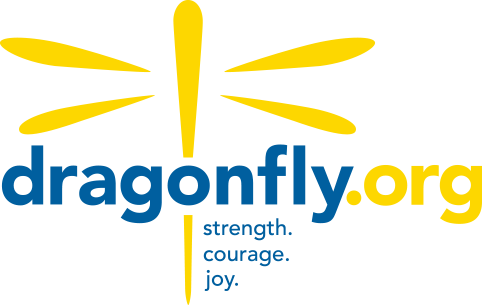The other day, I was visiting a friend who recently had surgery. The actual diagnosis that resulted in the operation wasn’t 100% percent confirmed. The relevancy for this blog is that she researched her symptoms online to help determine the cause of her issues. This is the part that motivated me to write about this blog post for Dragonfly: She said she was taking all of what she read with “A GRAIN OF SALT”!
What does that mean – did she visit credible websites or read mostly what others with similar symptoms had to say? Did she believe what she wanted and dismiss the rest? Was she scared out of her mind and decided to ignore everything? Did she discuss her findings with her doctor, etc… etc… etc…
The majority of us use online searches to find health information to help us understand what is happening with a loved one – or ourselves. Once we find information, how do we determine what is evidenced based, what isn’t, and if there are risks in trying it?
As a health professional, I turned to the Internet after my granddaughter’s diagnosis of Chronic Myeloid Leukemia (CML), a rare form of pediatric cancer. (I was a researching maniac!) Armed with information, I kept her doctor “informed” about all of the possible non-cancer related possibilities, including a potential peanut allergy, parasite, Lyme disease… A relative who was a researcher at the downtown Columbus, OH public library researched CML like it was his mission in life. Others tried to be helpful, too. While we appreciated their efforts, most of the information we found and that was sent to us had to do with animal studies, where most of the young died, or was adult-based science and really not relevant. Emotionally, it became too much to handle. As a result, we were scared crazy until our meetings with her doctor. Thankfully, my granddaughter’s wonderfully kind and knowledgeable doctor continually spent the time needed to provide facts and treatment options. He remained available by email and was a major support.
Here is what I suggest for your searches.
Go to credible sites that use evidenced-based science to educate. Those are the sites from universities, the producers of the medications your child may be taking, well-known credible organizations, and government sites, like the FDA, CDC and NIH. Here are links to a few, The Dragonfly Foundation would recommend. This is not the universe, only examples:
- https://www.cancer.gov/types/childhood-cancers
- https://www.cancer.org/cancer/cancer-in-children/types-of-childhood-cancers.html
- https://nationalpcf.org/facts-about-childhood-cancer/
- http://www.chop.edu/conditions-diseases/pediatric-leukemias
- https://www.cincinnatichildrens.org/service/l/leukemia-lymphoma/team
Parent/Patient sites have their place. Most parent sites are experienced-based. While it is great to get tips to help your loved one through some of the side effects they may experience from their treatment, the content most likely isn’t professionally reviewed.
I absolutely love reading positive outcome stories. However, it is important to remember that each patient is unique and may have different experiences and outcomes. Ones final tragedy may not happen to my loved one. Unless I am ready for that, I just didn’t want to read about it at the beginning of our journey where I want and need to be positive, optimistic and hopeful. Also, be leery as some advocate off-label use of medications, treatments found only in South America or other countries, and alternative remedies, such as herbs, that haven’t been clinically tested for efficacy and safety.
Talk with your medical team. Along with diagnosis and treating patients, these professionals are there to listen, answer your questions, and address your concerns. No one has all of the answers, but I personally would recommend seeking a trusted team who you could talk with and are available when needed. Many have emails and patient portal messaging systems, and will respond back within 24 hours. Most likely, they have heard your questions before and know a lot about alternative treatments being promoted, at the cost of using proven, well-researched options, along with many other topics of relevance.
Be supportive no matter what. Research and common sense tells us that patients do better when caregivers and family members believe they will improve, share positivity, and keep concerns to themselves. Patients benefit from the strength and energy of people around them. Studies also say that positivity improves resiliency and outcomes.
Support can be found at The Dragonfly Foundation. Community is so important, as is helping patients maintain their spirits, self-image, outlook, and connections to the world outside the hospital walls. Sharing experiences with others who have been through or are going through similar experiences can be extremely beneficial. Dragonfly also has wonderful resources and information that can help balance working, caring for other children, and keeping patients, siblings/offspring entertained and enriched. Also, of major importance, you may get that much-needed hug or someone who will listen and truly understand.
In the end, I hope you don’t place yourself in a position to take what you read online with that proverbial grain of salt, but find resources, answers, and community that make a positive difference. You and your family deserve nothing less!
— Contributing Writer: Elaine Plummer, RN, [email protected]


